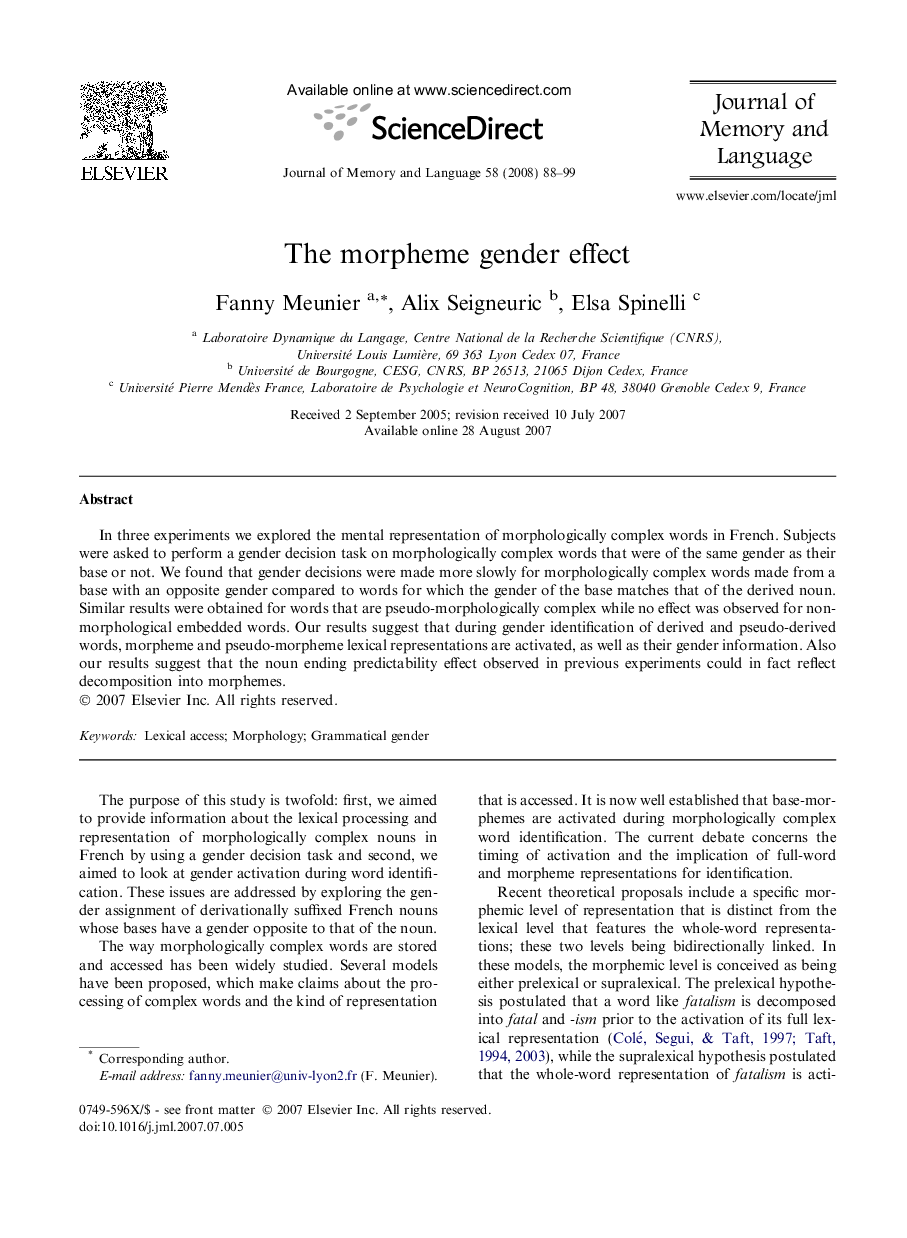| Article ID | Journal | Published Year | Pages | File Type |
|---|---|---|---|---|
| 932160 | Journal of Memory and Language | 2008 | 12 Pages |
In three experiments we explored the mental representation of morphologically complex words in French. Subjects were asked to perform a gender decision task on morphologically complex words that were of the same gender as their base or not. We found that gender decisions were made more slowly for morphologically complex words made from a base with an opposite gender compared to words for which the gender of the base matches that of the derived noun. Similar results were obtained for words that are pseudo-morphologically complex while no effect was observed for non-morphological embedded words. Our results suggest that during gender identification of derived and pseudo-derived words, morpheme and pseudo-morpheme lexical representations are activated, as well as their gender information. Also our results suggest that the noun ending predictability effect observed in previous experiments could in fact reflect decomposition into morphemes.
